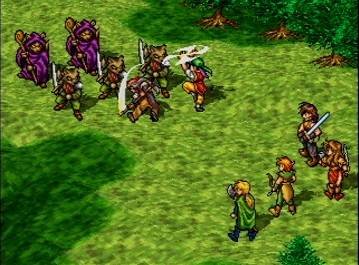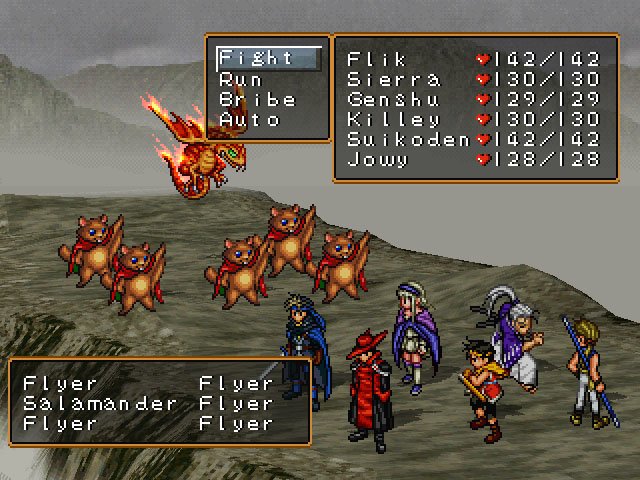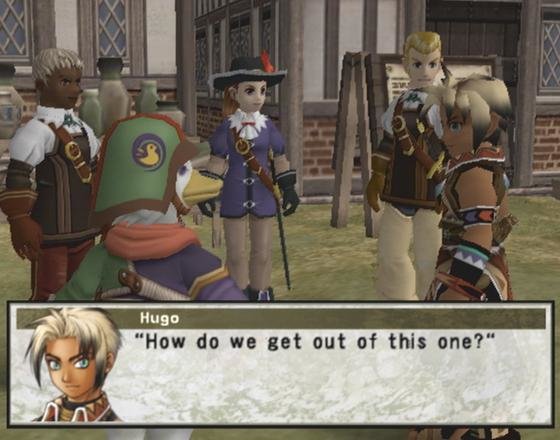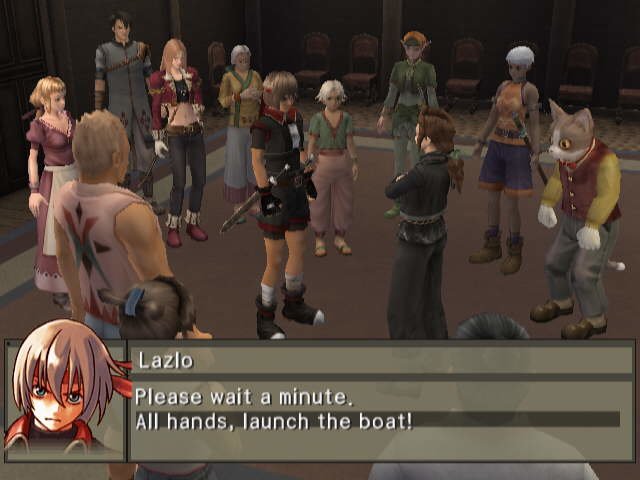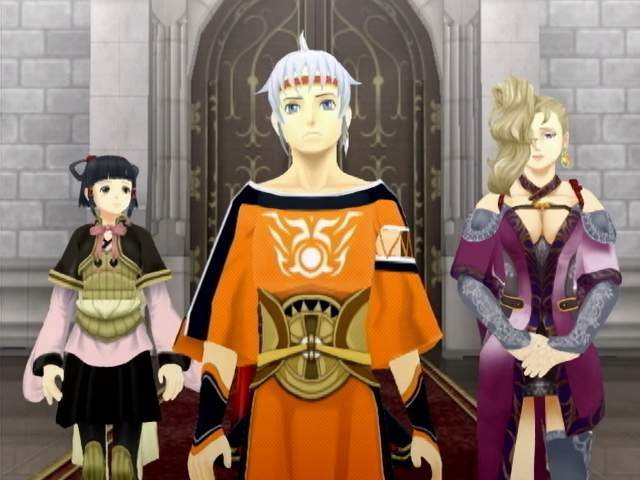It was pretty hard to miss, but in case you have, Suikoden I & II were released on the PSN last Tuesday (December 9). For some people, this meant nothing, and for many people it meant a chance to relive one of their favorite games of all time. For me, it meant getting a chance to play two games I have been waiting years to play, but could never get my hands on.
Suikoden II will cost you over 100 USD if you manage to find a seller online, and while Suikoden I isn’t nearly as high, it still may cost you the price of a newly released AAA title. As much as I wanted to purchase these games and experience them, I never had the spare cash. The first two Suikoden titles coming to PSN is such a big deal for so many people I feel it has been severely understated.
There are plenty of articles out there talking about how incredible Suikoden II is and why you need to play it. I’m here to say the same thing, but I’ve never played Suikoden II. But I love the other games in the series, and supposedly Suikoden II is the best of not only the Suikoden series, but one of the best RPGs ever made. Even with such a grand statement, I feel Suikoden is still a very overlooked game and I’m hoping this recent attention could renew the series. (Please Konami, make a Suikoden VI!) I want to explain why Suikoden is one of the great RPG series out there, or at the very least, explain why it is my favorite RPG series.
The Suikoden series is so well-liked for three main reasons (among dozens of others good reasons). The storylines are incredibly deep, complex, and emotional. Suikoden has always focused on characters, and through the detailed characters a story emerges. The games often start slow, but this develops the characters and overtime what you uncover about them will be the main attachment you feel to the game.
When someone betrays you, when a twist is revealed, when a major plot point is uncovered—you really feel the impact. You are in a stupor along with the characters, but then you hear the story of why someone betrayed you. And it makes sense. Suikoden does something I haven’t experienced in that many video games: there is no real evil character.
Okay, maybe that is a little extreme. Yes, of course there is a big-baddie you need to stop, but unlike other villains that are out to destroy the world. The enemies in Suikoden have always had some reason that was actually acceptable. The actions may have been selfish reasons, but they were done for a true purpose. When a group rebels against the Kingdom, it isn’t some power-hungry lunatic, it’s someone that is trying to make the Kingdom better through their own vision. That doesn’t make it right, but how often in real life are two opposing sides both right in their own way?
I’m not saying every character is three dimensional. There are some enemies with laughable motives, but the main drive for most characters is something so grounded you can relate to it on some fundamental level. There are certainly characters that are annoying and you don’t even understand why they’re in the game, but overall Suikoden nails its characters about 90% of the time. Good or evil, the characters feel real, and to me, characters are the most important element in any story.
The second great part is the world it creates. Unlike other RPG series that have nothing to do with one another, Suikoden takes place all in the same universe. Maybe another RPG series does take place in the same universe, but the two games have no relation to one another. Suikoden ties all its games together in big ways, and at the same time, very subtle ways only true fans will understand. They aren’t direct sequels, you can still play them separately. They have their own stories from beginning to end, but their interconnected stories make Suikoden’s world feel much larger.
I won’t go into spoilers, but here’s an example. Even though I have not yet played Suikoden II, I know there is a line of dialog that seems unimportant and doesn’t really matter in Suikoden II at all, but years later in Suikoden V (which takes place before Suikoden II on the timeline of that universe) it makes complete sense. That’s crazy to me! A side character in one game could be a main character in another. The joy you feel seeing a character you liked from a previous game suddenly appear in the one you’re currently playing is incredible. I am always impressed by the ability of how these games are connected, and it’s amazing how great you feel when one character mentions something that happened in another game. You think, “I know what they’re talking about! I played that!” It makes the world feel real and alive as you discover another side of history in that universe.
A world that’s filled with magic and lore like any Elder Scrolls or Dragon’s Age game. There are myths and legends that are revealed in each game. True Runes more powerful than all other magic, and only a select few capable of wielding them. There are even ancient civilizations with technology that has been lost to the world. Creation myths, and tales of how kingdoms rose and fell. The world of Suikoden is a big one. It may not be thrown in your face at all times, but digging a little will reveal one hell of a complex universe.
Suikoden has created one of the most intricate and fantasy-filled world across all its games. It isn’t far-fetched to compare it to Game of Thrones with some of the political and suspenseful plot-lines and character driven stories. Families trying to gain the throne for themselves, and different factions uniting only to betray each other moments later. It’s fascinating to watch unfold and it really does keep you on the edge of your seat. There are some twists you will never see coming, and characters you’ll learn to hate with immense passion. I’m not calling Suikoden a political thriller, but it certainly is a lot deeper than good vs evil
The third reason, and the one I believe to be the biggest reason for what Suikoden has become known for, are the 108 Stars of Destiny. In layman’s terms, you can collect 108 people like Pokémon. They all have their own skills, weapons, specials, and various other uses. Find someone with amazing defense, put him in the front, and watch them counter, parry, and block wave after wave of attack. You can fine-tune your party. You aren’t given six characters all with set statistics and told to use three. The mix and match capability is—well—not endless, but there is a lot of options. It’s a shocking amount of freedom found in a very traditional RPG.
Finding your favorite party is as rewarding as it is finding your favorite Pokémon. There are tons of other games that use a mix-and-match system, but Suikoden manages to give depth to almost every character. Recruiting them, finding their reason for why they want to join you, and developing relationships with them makes you feel even more attached to this game. That’s why when a character dies, it is heartbreaking to replace them. You feel them missing from your party, and it is this hole you cannot fill…unless you reload a save.
I can’t stress enough that if you are a fan of JRPGs, Suikoden is one of the best series to play. It is personally my favorite series. It was Suikoden IV that got me hooked on RPGs in the first place, and even after playing dozens of RPGs, Suikoden V is still my favorite out of all of them. Suikoden is under appreciated and deserves another look now that older titles are becoming more accessible. It may not have the best graphics, the most unique gameplay, or the biggest playable world. But the story and characters created in this series are unmatched by a majority of other games out there. I rarely go back and play older video games, but I have been waiting years to experience these two titles. Luckily, it won’t cost me hundreds of dollars to do so now.

